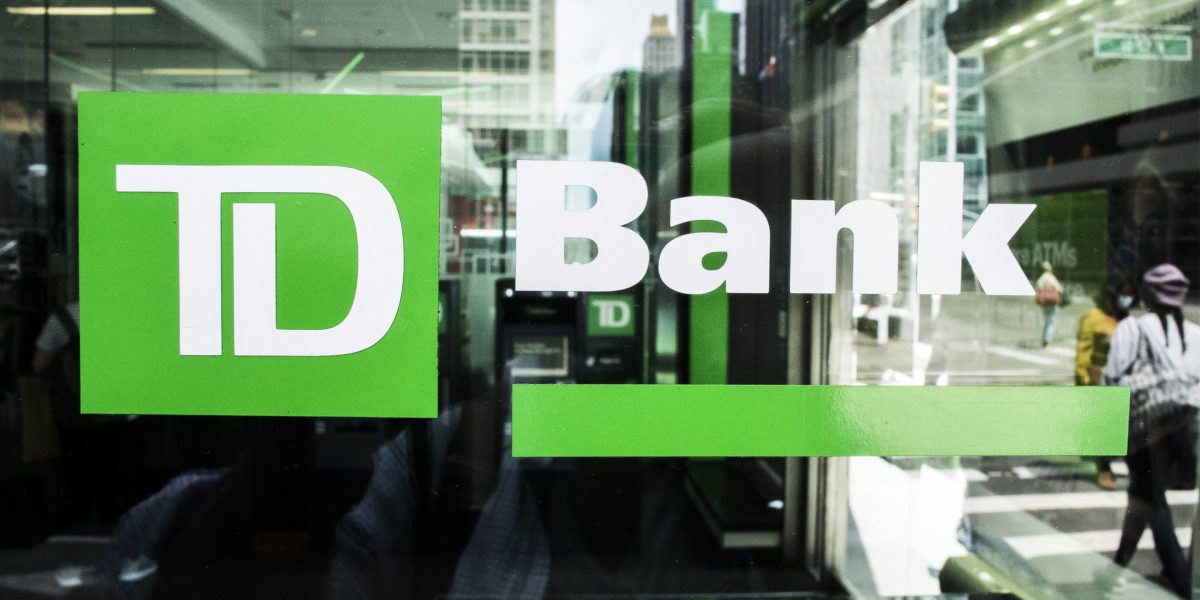On Thursday, Attorney General Merrick Garland announced that TD Bank would become the largest bank to plead guilty to charges related to money laundering and that it would pay a landmark $3 billion in penalties spread across financial regulators.
The amount of the fine was extraordinary but in another respect, the TD case was like every other bank enforcement case: None of the executives responsible are going to jail, at least for now. This trend of banking executives being allowed to skate on criminal charges goes back decades, with perhaps the most famous example being the financial crisis of 2008, when the feds sent a single mid-level Credit Suisse executive to jail.
While more charges could be forthcoming, the outcome of the TD scandal stands in stark contrast to the Justice Department’s treatment of crypto giant Binance a year ago. In that case, the agency not only imposed a whopping $4 billion but brought charges against the company’s founder and CEO—leading to a four-month prison sentence. Legal experts have noticed what appears to be a special set of rules when it comes to bankers overseeing crime.
“It has been noted by commentators that, bank executives have largely avoided jail time following the financial crisis, even where the bank faced significant criminal liability,” Vanderbilt Law professor Yesha Yadav told Fortune over email. “As such, it should not be too surprising here that TD’s bank executives will escape personal criminal liability, notwithstanding the astonishing scale of rule-breaking seen at the bank.”
A representative from TD Bank did not respond to a request for comment from Fortune. A Justice Department spokesperson pointed to the Q&A portion of Garland’s press conference, where he pointed to an ongoing investigation targeting individuals at TD that the DOJ is “continuing aggressively.”
“We do expect to see more prosecutions,” Garland added, without clarifying whether they would be against executives. The plea agreement also references the ongoing investigation.
The DOJ spokesperson also shared court filings of charges filed against individuals in relation to the enforcement action, including two employees of TD Bank, although their specific identities remain unknown.
The chickensh*t club
As a stateless crypto exchange known for flaunting regulators and facilitating illicit financing ranging from terrorists to drug traffickers, Binance earned one of the largest financial penalties in U.S. history and a stiff rebuke from Garland. “Using new technology to break the law does not make you a disruptor, it makes you a criminal,” he said last November.
And despite the relatively light sentence against Zhao, which he carried out at a minimum security facility in California, the crypto executive did serve time in a federal penitentiary, while many of his peers in the world of traditional finance instead received only deferred settlements and fines.
TD Bank may operate as a regulated financial institution in the U.S., but the crimes it committed are similar to those carried out by Binance. Those include failing to implement money laundering controls and allowing billions of dollars of illicit funds to flow through its platform, including by international drug traffickers. According to the DOJ, 92% of total transaction volume went unmonitored over a nearly seven-year period ending in April 2024.
In the plea agreement, prosecutors single out TD leaders, writing that the bank’s prioritization of growth over compliance, with decision-making coming from senior executive management, resulted in the negligence.
“Binance was never a regulated U.S. financial institution subsidized by the public purse,” Yadav told Fortune. “TD Bank had to work intentionally and concertedly to break a slew of banking regulations.”
So why are none of its executives going to prison? The question is even more pressing given that financiers did not always enjoy apparent get-out-of-jail cards. In his 2017 book The Chickenshit Club, ProPublica journalist Jesse Eisinger recounts how federal prosecutors sought jail time against executives of failed energy giant Enron and its accounting firm, Arthur Andersen, in the early 2000s.
More recently, though, a variety of factors have made the Justice Department more timid when it comes to prosecuting bankers. Those include a Supreme Court ruling overturning the Arthur Andersen convictions, the ever-revolving door of DOJ lawyers going to white-shoe law firms, and more prosecutors who fear losing cases. (The latter belong in “the chickenshit club,” according to former U.S. Attorney James Comey, who inspired the title of Eisinger’s book.)
Too soon to tell
While the DOJ did not announce charges against TD executives as part of the settlement, the investigation remains ongoing. “It is premature to make judgments about the TD Bank case and individual prosecutions,” Jay Shapiro, a Middlebury professor and former New York City prosecutor, told Fortune over email.
Under the Biden administration, the DOJ may also be shifting to a more hardline approach to individual accountability and corporate responsibility, according to a 2022 speech by Deputy Attorney General Lisa O. Monaco.
Speaking at NYU Law School, Monaco highlighted recent trial victories, including those against the Theranos founder Elizabeth Holmes, J.P. Morgan traders for commodities manipulation, and a managing director at Goldman Sachs for bribery. A year later, of course, came the conviction of FTX founder and CEO Sam Bankman-Fried, though, like Zhao, he also operated outside of the bounds of traditional finance.
“We need to do more and move faster,” she said, arguing that the DOJ’s priority would be to complete investigations and seek criminal charges against individuals at the same time as entering a resolution against a corporation. If that was not possible, she said that prosecutors would aim to outline the remaining work on individual cases, as well as a timeline. Shapiro argued that the TD settlement was consistent with Monaco’s remarks.
“Our criminal investigations into individual employees at every level of TD Bank are active and ongoing,” Garland said in his announcement of the charges. “No one involved in TD Bank’s illegal conduct will be off limits.”
Whether the DOJ changes its track record of bank executive prosecutions remains to be seen.
